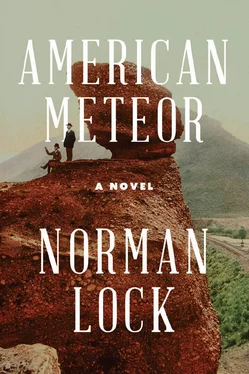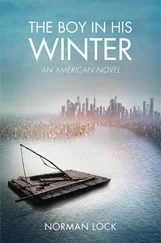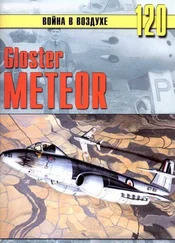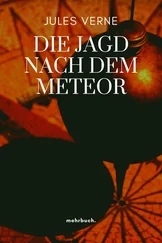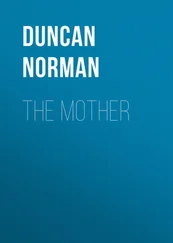“Let’s drink a toast to our Great Emancipator,” the fat man said. “To him who, with a single bullet, has delivered us from the tyrant.”
They raised their glasses to a framed engraving of John Wilkes Booth, shrouded in crepe.
“ Sic Semper Tyrannis !” they shouted in unison. “Thus Ever to Tyrants!”
They eyed me suspiciously. Pickled as I was, I sensed their anger brewing, hot and bitter. I felt like Caesar encircled by the conspirators, with no place to duck.
“Why aren’t you toasting him?” asked a man who’d been introduced to me as a retired expediter for the slave trade.
He was red-faced, potbellied, and wheezing. He reminded me of Mr. Fezziwig, whose picture I’d seen while thumbing through a book left out on a major’s bunk. That was during the do-nothing days before Bull Run, when McClelland liked to play soldiers. I’ve never known a cockier son of a bitch than McClelland. Can you imagine if he’d beaten Lincoln in ’64? Old Abe’s life would have been spared, but the country would have gone to hell.
“Perhaps you mistook him for a sympathizer,” growled a fierce old Copperhead.
“He shook my hand when I gave him the card,” Titus replied indignantly, nodding toward a stack of them on the table. “He laid it in his wallet, like a lock of his sweetheart’s hair.”
“He’s a damned Yankee sergeant!” snarled a weak-eyed, ink-stained man with the shape and color of a carrot. “You must’ve been crazy to bring him here!”
“Plenty of Federal boys hate Lincoln for putting them through hell for the sake of the niggers!” Titus spluttered, like fire falling on damp tinder.
“What’s that medal he’s wearing? For murdering Confederate boys, I suppose!” barked an Arkansas man who claimed to have mailed Lincoln seventeen death threats since ’64: one for each year of life taken, by a Union hangman, from the “Boy Martyr of the Confederacy,” David Owen Dodd.
I pretended to have fallen asleep. They shook me roughly awake to explain myself.
“Let him kiss the stick!” Titus said. “That’ll prove it one way or the other.”
A skinny red-haired man named Gaiter, who’d lost a fortune in cotton during the war, fetched the stick while Titus praised it, for my benefit, as the one that hotheaded South Carolina Congressman Preston Brooks had used to beat the abolitionist Charles Sumner “to within an inch of his damned life” on the Senate floor. Gaiter handled it with reverence, as you would a relic of a Christian saint. He offered it to my lips, and I kissed it willingly enough. There was room on the calendar for only one martyrdom in April, and my erstwhile commander in chief was welcome to it. I was, remember, just sixteen years of age and enfeebled by strong drink.
My show of adoration appeased them. They clapped me on the back and filled my glass, but when I commenced to vomit up a swill of pigs’ feet and whiskey with a chaser, they hurried me outside and slammed the door. I considered myself fortunate to have escaped with my life. They were ridiculous but dangerous notwithstanding. Was I a coward? Would you have lit the fuse and waited to be hoisted by your own petard? Often, I’d measure myself against other men and find myself wanting in courage, in selflessness, in any kind of love.
I’d never again go looking for my father. In fact, that day in New York City, the twenty-fifth of April, would be nearly my last back east. I’d make one more excursion there, ten, eleven years later. Increasingly, I would come to feel the tug of the West. It wasn’t anything definite. I had no tiny Horace Greeley in my head, urging me in that direction. It was a feeling, a sense, a raw emotion that stole over me, like rye whiskey taken slow. If westering was America’s destiny, it was also mine.
The sweetish odor of animal corruption assailed my nose, snapping my reverie in two. My cigar had gone out. Lighting it, I saw in its glowing ember the dead leaves in the thickets of the Spotsylvania Wilderness that our musket lints had set ablaze. They burned down a stand of trees and, in it, hundreds of trapped Federal soldiers. That was Grant’s worst day of the war, and also theirs.
On the morning of May the third, twelve days after having left Washington, Mr. Lincoln reached the end of his journey — unless you believe in the lessons of the Sunday school — at the Chicago & Alton Depot on Jefferson Street. I had thousands of miles yet to travel. They took him and Willie to the State House, where, with rouge chalk and amber, the undertaker made our Great Emancipator’s face presentable. The day scorched, as though hell’s own wind were loosed on Springfield to mock him; and I feared that the secret processes of the embalmer’s art would be undone. I nearly shouted, because of the heat and my anxiousness, that they should hurry the dead man to his tomb and slam the heavy door shut to prevent some horror. Nerves strung tight like piano wire, I felt I was a player in an ancient tragedy. Was this how Booth felt on that Good Friday in Washington? Had he absorbed too much of Julius Caesar , in which he’d played Marc Antony to his brother’s Brutus? It ought to have been the other way round, but things are seldom so neatly done in real life. (Was my life real? Real and unreal, like everybody else’s. Photographers can get muddled up in that kind of question — the serious ones can.)
At the cemetery the next day, the feeling that I was extraordinary, that I was a person at the center of great events left me. Modesty prevailed, an unfamiliar emotion to one who liked to show off. I didn’t push ahead of the others standing at the iron door of the tomb; I skulked among the trees. I’d had enough of celebrity. I was sorry for Father Abraham, for me, for the whole damned world. Of Bishop Simpson’s interminable oration, I remember only this: “His moral power gave him preeminence.” I walked back to the railroad depot, thinking how I might acquire such power. I felt full of a great and noble purpose. By the next day, I’d forgotten all about it.
Springfield, Illinois, May 26–December 7 (Thanksgiving Day), 1865
In Springfield, I shot a man named Jacob Lowry. He came at me with a bayonet he claimed to have used to gut the blue bellies at Chickamauga. I stood in the street and called him a scavenger of corpses belonging to honorable men — in blue and gray — cut down in battles he was too scared to fight. I don’t know which side of the truth I’d landed on in my ire. It didn’t matter, because the reason he lunged at me with that tarnished piece of steel had nothing to do with the War of Secession, but with a pretty black-haired girl. Funny, I can remember Lowry’s name but not hers. Fury must be a stronger, more durable emotion than — call it “infatuation,” since I’m not sure I ever understood love.
I was at loose ends after Mr. Lincoln was laid to rest. With no money or place to go, I took a job at a feed and grain store in Springfield. Lincoln’s parlor car was sold to the Union Pacific Railroad, but I was allowed to sleep there until a train heading to Nebraska Territory could be made up. A girl — she was eighteen and filled her bodice handsomely — came into the store one morning for a bushel of dried corn. I had on my blue coat and — I’m embarrassed to admit — the Medal of Honor. It must have impressed her, unless it was something in my face she liked. The workings of a woman’s heart and mind are mysterious to me.
We began to see each other. She showed me what respectable amusements the town had to offer: dances in the grange and church halls, baseball games, picnics and band concerts by the Sangamon River, and walks along its bluffs. I taught her euchre and keno, games I’d learned while soldiering. I held her hand and mooned over her. I might’ve kissed her. It’s a shame if I didn’t — she was a pretty girl. We walked out together from late May until Thanksgiving, when Lowry returned to Springfield. He’d been in Charleston after Sherman thrashed it with fire and sword. Lowry was like a magpie picking at leftover stubble in hopes of finding shiny trash. Now, once again in town, he let it be known that he had an understanding with the girl and no Federal son of a bitch was going to trespass on his territory.
Читать дальше
